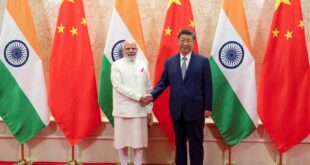In a world where the foundations of international law are being eroded under the weight of geopolitical interests and strategic calculations, the European Union finds itself at a historic crossroads: Are the values it claims to champion—human rights, justice, and multilateralism—truly guiding its foreign policy, or are they mere façades for advancing European interests? In light of Israel’s repeated violations of international law—including the humanitarian blockade of Gaza, attacks on civilians, and disregard for rulings by international institutions—the question of continuing Europe’s special relationship with Israel has become an urgent matter.
Europe’s Legal Responsibility in Light of Severe International Violations
Since 2000, the EU and Israel have maintained formal and extensive relations under the framework of the Association Agreement, which, in its second article, identifies respect for human rights, democratic principles, and the rule of law as the “essential elements” of cooperation. However, Israel’s conduct in recent years—especially since October 2023—constitutes a clear breach of these fundamental principles.
In January 2024, the International Court of Justice (ICJ), in response to South Africa’s complaint, issued a binding ruling obligating Israel to ensure the delivery of humanitarian aid to Gaza. This ruling came in the context of a case alleging genocide by Israel. Yet, official UN and humanitarian reports from spring 2025 revealed that not only was this ruling not implemented, but the blockade of Gaza was further tightened, leading to famine and the deaths of thousands of civilians.
Additionally, in July 2024, the ICJ issued an advisory opinion declaring the occupation of Palestinian territories illegal and called on the international community to take effective action to end it. As a bloc of states committed to international law, the EU cannot remain indifferent to these rulings—otherwise, it is its own legal legitimacy that will suffer.
The Ethical and Political Imperatives for Reassessing Relations
The EU has long portrayed itself as a model of commitment to universal values. But maintaining normal relations with a country that is not only under investigation by the International Criminal Court (ICC) for war crimes and genocide, but also systematically violates human rights, renders such claims hollow. In 2025, Amnesty International and Human Rights Watchexplicitly characterized Israel’s policies in the occupied territories as apartheid and gross violations of human rights. The EU cannot simultaneously claim to uphold universal values and act as a strategic partner of their violators.
The EU’s position as Israel’s largest trading partner—with trade exceeding €46 billion in 2024—means that Europe not only has leverage, but also a responsibility. Continued technological support through programs like Horizon Europe, customs exemptions, and academic exchanges without any conditions serve as signals of impunity for Tel Aviv.
The experience of international sanctions against South Africa’s apartheid regime shows that economic pressure and diplomatic isolation can be effective, even against the most entrenched systems. A similar approach toward Russia after the annexation of Crimea also proved to be a partial deterrent. Given its economic dependence on the West and its need for international legitimacy, Israel is particularly vulnerable to restrictive measures. If Europe has the will, it can impose real costs on Israel’s destructive policies.
The Cost of Inaction for the European Union
Maintaining special relations with Israel not only weakens the EU’s legal credibility but also severely damages its moral standing in the eyes of the Global South. International polls in 2025 show that majorities in Arab, African, and even some Latin American countries view Europe’s policies as evidence of double standards and Western hypocrisy.
Moreover, Europe’s inaction toward Israel has opened the door to increasing influence by China, Russia, and other non-Western actors in the region. The stark gap between Europe’s official rhetoric and its actual conduct has eroded the trust of long-standing partners and diminished Brussels’ negotiating power on critical global issues.
From a security perspective, the ongoing crises in Gaza, Lebanon, and the West Bank have triggered a new wave of migration, political instability, and rising extremism near Europe’s borders. According to a 2025 UNHCR report, more than 1.5 million new refugees from the Middle East have entered Europe—a figure that will likely increase sharply without a principled and proactive policy.
The Time for a Decision Has Come
Suspending political, economic, and technological cooperation with Israel is not a radical act—it is a responsible response to the systematic violation of international law. This move is not only in line with the provisions of the Association Agreement and the EU’s legal obligations but also represents an ethical correction in its foreign policy approach.
The European Union cannot simultaneously claim to defend a rules-based international order and remain silent in the face of one of its most blatant violations. This is a moment of choice: either cling to short-term interests and the status quo, or rebuild lost legitimacy and play a meaningful role in shaping a more just future.
If Europe wishes to secure a credible place in the global order of tomorrow, it must demonstrate today—through action—that it truly stands by its principles. Suspending cooperation with Israel is not the end of a relationship, but the beginning of its redefinition—based on the very values Europe claims to uphold. The time for reevaluation has arrived.
 Geostrategic Media Political Commentary, Analysis, Security, Defense
Geostrategic Media Political Commentary, Analysis, Security, Defense





